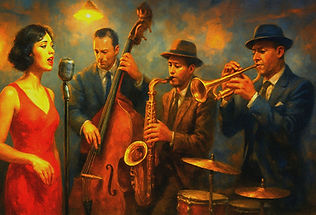
Think Jazz: Variations on a Theme
Conservatives have an easier time disseminating messages because, as Jonathan Haidt has shown, they value hierarchy. Politicians on the right are happy to use talking points developed in rightwing think tanks and to fan out across the country using the same phrase, meme, or sentence at the same time. Because they

accept and value marching orders, they can message like members of a marching band, playing memorable tunes and making use of the power of repetition in memory, persuasion, and branding.
Those of us with broadly progressive values – and many conservatives in the old sense of the term – tend to be more thoughtful about policy and principles and to value our capacity to think on our own. We prefer to use our own words – at times, even when those words are less effective in accomplishing our goals than other language we could use.
The preference for thought and nuance over hierarchy and simplicity requires a different kind of message discipline than that of the right.
So put away your tuba and band uniform.
Take in the vibe at a jazz club. It’s all about variations on a theme. We can use a wide range of messages if they all lead in the same general direction, convey shared values, and are in the same key.
Not every bird looks the same or is the same species, but we still know that robins and sparrows are birds. If those of us to the left of center could ever find our way to the aviary, we would see why, sure, ornithologists distinguish species, but they don’t train their binoculars on fish. They know a bird when they see one.
To understand progressive messaging, you just need listen to John Coltrane’s version of “My Favorite Things.” He starts with the familiar tune we all know but then plays it again, this time diverging slightly with notes that create suspense and excitement by going up where we expect them to go down, or throwing in a trill Julie Andrews never sang. He then returns to the theme, improvises widely, but ends with the theme that allows listeners to know what he was “saying” and to appreciate the nuance.
This is how we improvise in unison - and with authenticity.
What this project provides our leaders are the musical “scores” – narratives, soundbites, and talking points – on the major issues, around which they can improvise, using their unique voice and expertise, while still playing what is recognizably the same tune. Not only will that teach a generation of leaders how to reach the public more effectively, but it will simultaneously help generate a “farm team” of leaders who will carry those messages, and the understanding of messaging they develop, into higher office.
And if you prefer country, listen to Tim McGraw’s “Undivided,” which is a masterclass on how to talk with Southern and rural voters about prejudice, the politics of division, and patriotism.